SJTU Hosts Academic Symposium on East Asian Metropolises and Sustainable Human Development
2025/4/3 14:10:54
In his opening remarks, Professor Wu Jiannan, Executive Vice Dean of the China Institute for Urban Governance and Dean of the School of International and Public Affairs, highlighted the critical role of East Asian metropolises in sustainable development. He expressed hope that the symposium would foster stronger academic and practical exchanges. The event brought together ten distinguished scholars from leading universities in China and Japan, who engaged in in-depth discussions on pressing issues in sustainable urban development. The symposium was chaired by Professor Lyu Shoujun, Head of the Department of Public Economics and Social Policy.
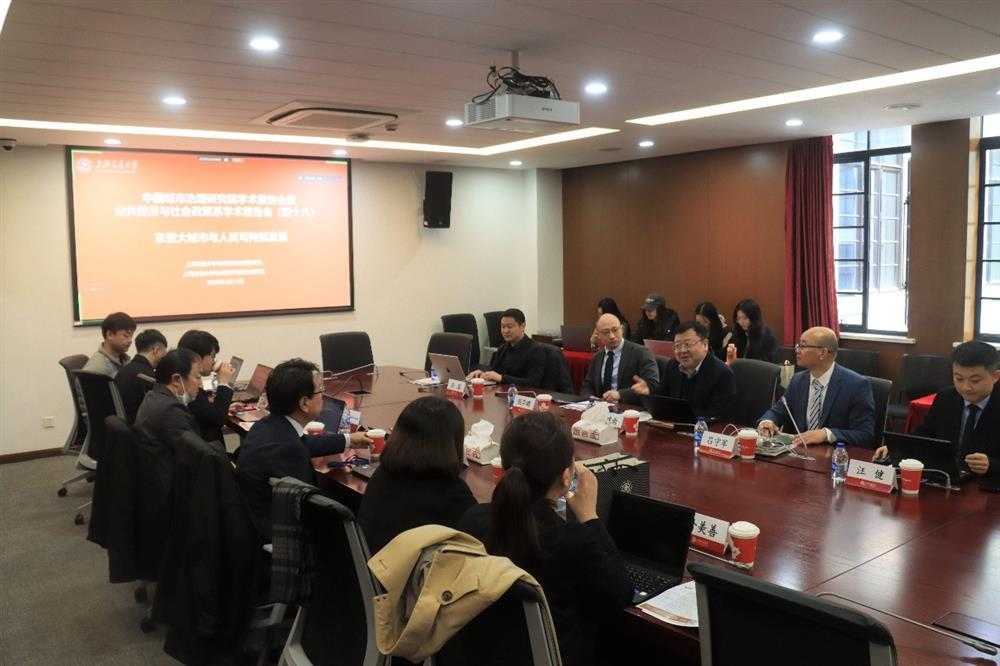
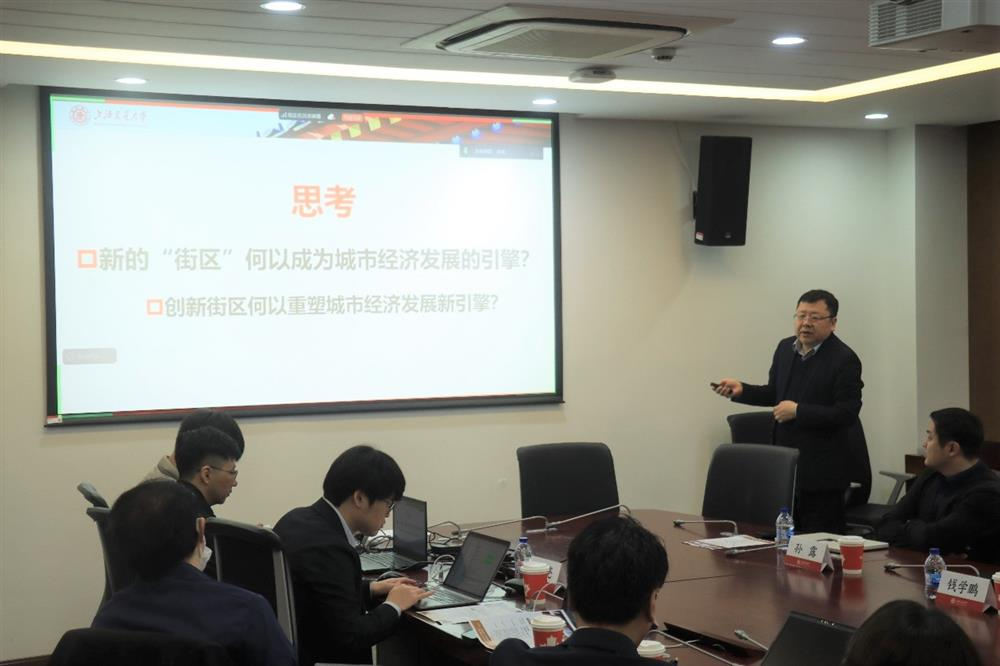
Key Academic Discussions
Professor Wu Jiannan delivered a keynote speech titled “Revitalizing China’s Economic Growth through Innovation Districts.” He emphasized the role of innovation districts as new engines of urban development and their significance in China’s economic transformation. His presentation explored how policy guidance and innovation-driven strategies can create competitive innovation districts.
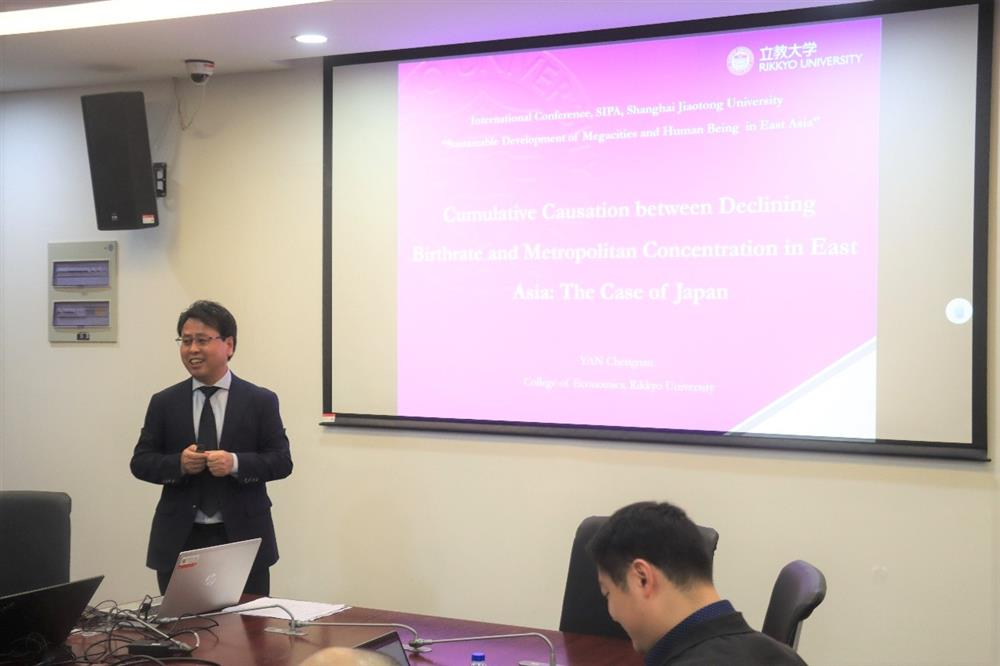
Professor Yan Chengnan from Rikkyo University’s College of Economics presented a study titled “Cumulative Causation between Declining Birthrates and Metropolitan Concentration in East Asia: The Case of Japan.” His research examined the intricate relationship between declining birthrates and urban concentration in East Asia, using Japan as a case study to analyze the economic, social, and cultural drivers behind this phenomenon.
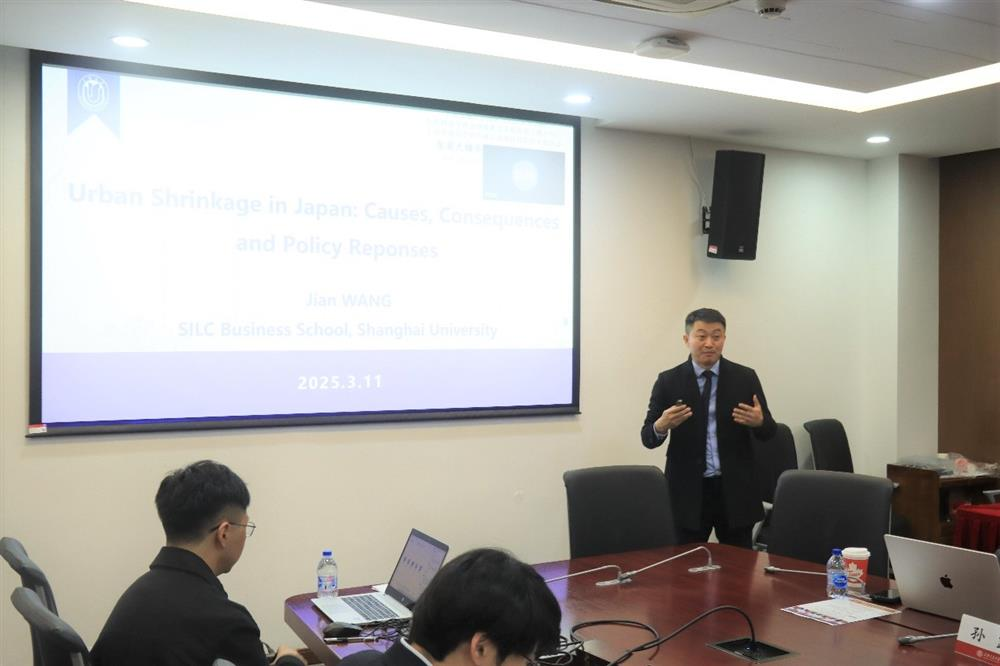
Associate Professor Wang Jian from the University of Shanghai’s SILC Business School, delivered a presentation on “Urban Shrinkage in Japan: Causes, Consequences, and Policy Responses.” He explored the factors contributing to urban contraction in Japan, its socio-economic implications, and the government’s policy responses, providing valuable insights for addressing urban shrinkage.
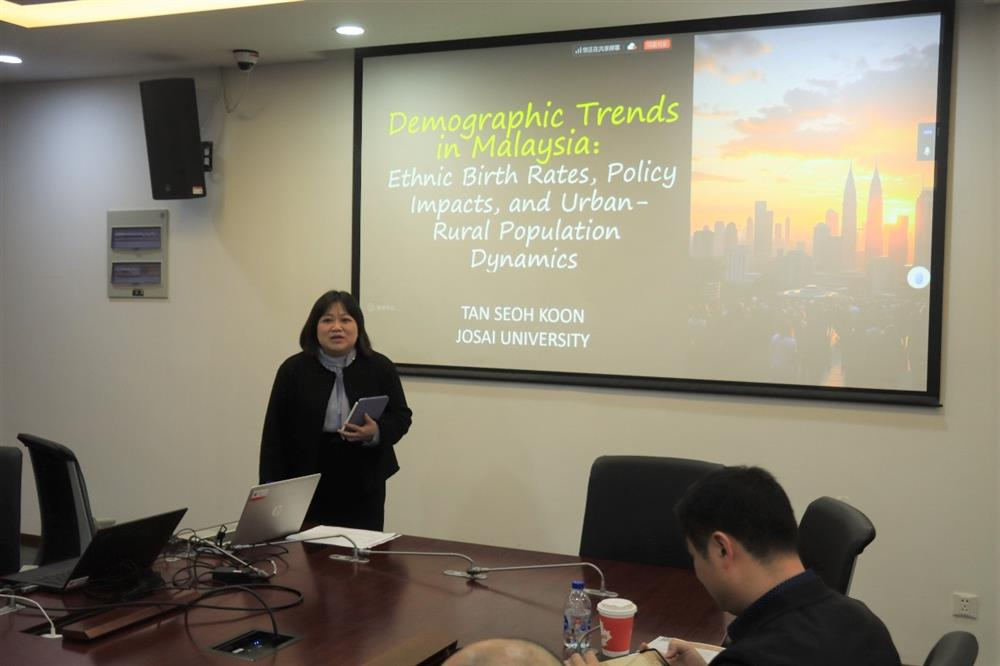
Associate Professor Tan Seoh Koon from Josai University’s Faculty of Economics presented “Demographic Trends in Malaysia: Ethnic Birth Rates, Policy Impacts, and Urban-Rural Population Dynamics.” Her research analyzed Malaysia’s demographic shifts, variations in ethnic birth rates, policy influences, and urban-rural population dynamics, offering a fresh perspective on demographic changes in multicultural contexts.
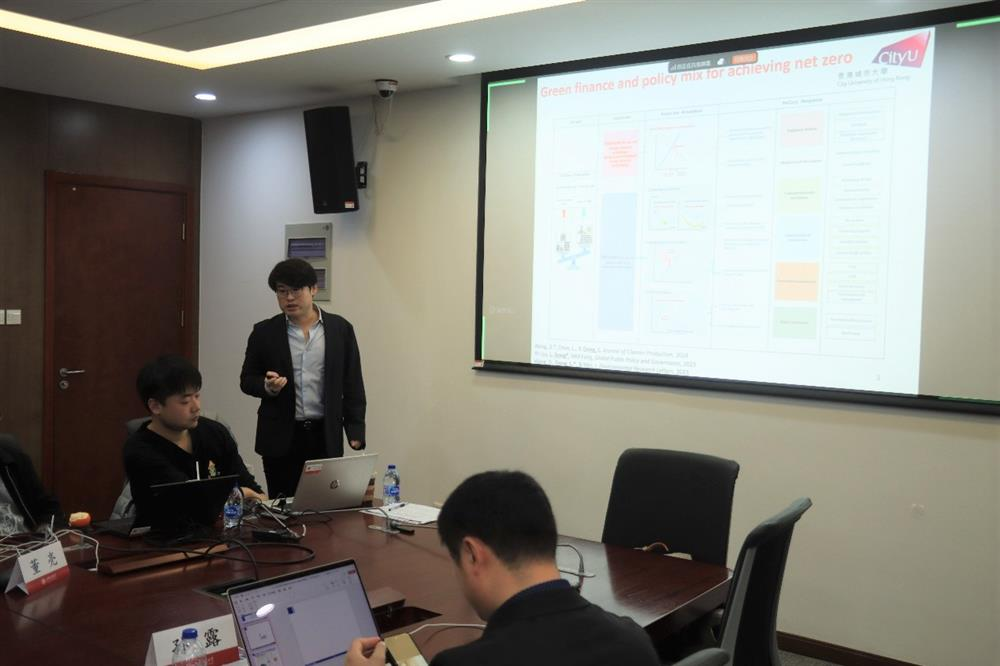
Associate Professor Dong Liang from City University of Hong Kong’s Department of Public and International Affairs discussed “Understanding the Financed Whole Life Carbon Emissions in the Real Estate Sector: GHG Emissions Associated with Residential Mortgages in Hong Kong from 2000 to 2020.” He examined the full lifecycle carbon emissions linked to residential mortgages in Hong Kong, proposing policy recommendations to reduce emissions in the real estate sector.
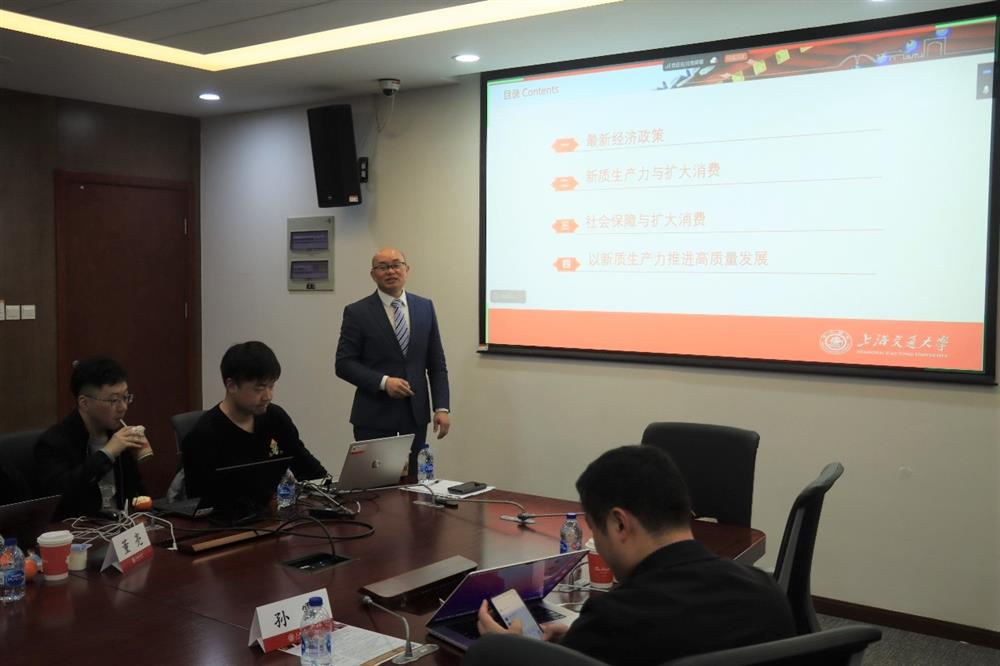
Professor Lyu Shoujun spoke on “New-Quality Productive Forces, Social Security, and Expanding Consumption,” discussing how new economic drivers contribute to economic growth, enhance social security, and stimulate consumption, offering new insights into sustainable economic development.
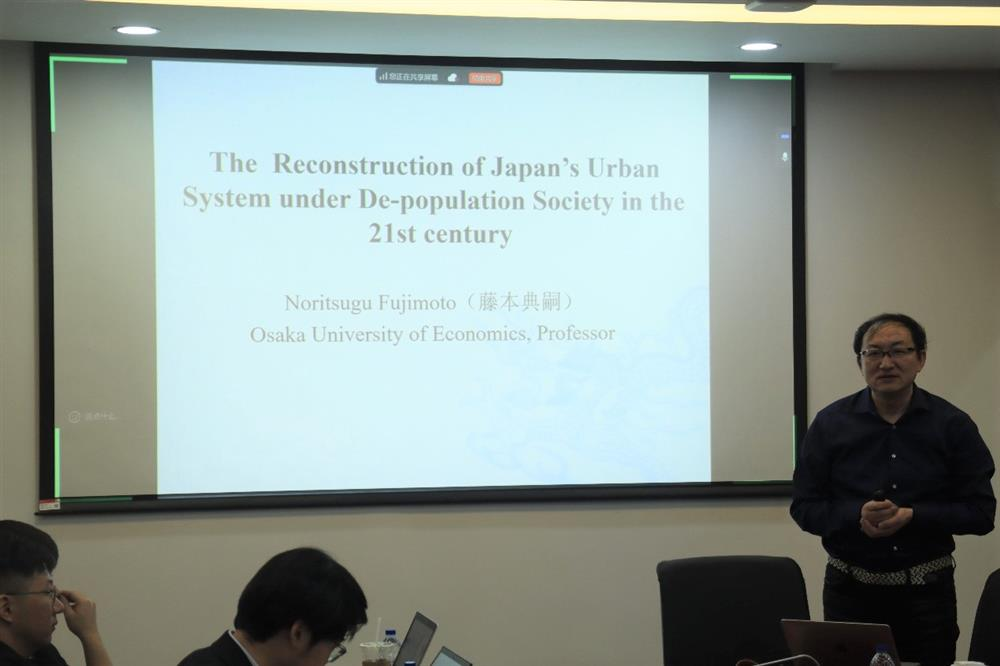
Professor Fujimoto Noritsugu from Osaka University of Economics’ International Collaboration School presented “The Restructuring of Japan’s Urban System under a Depopulating Society in the 21st Century.” His analysis detailed how Japan is restructuring its urban systems in response to declining birthrates and an aging population, providing valuable references for understanding urban development in aging societies.
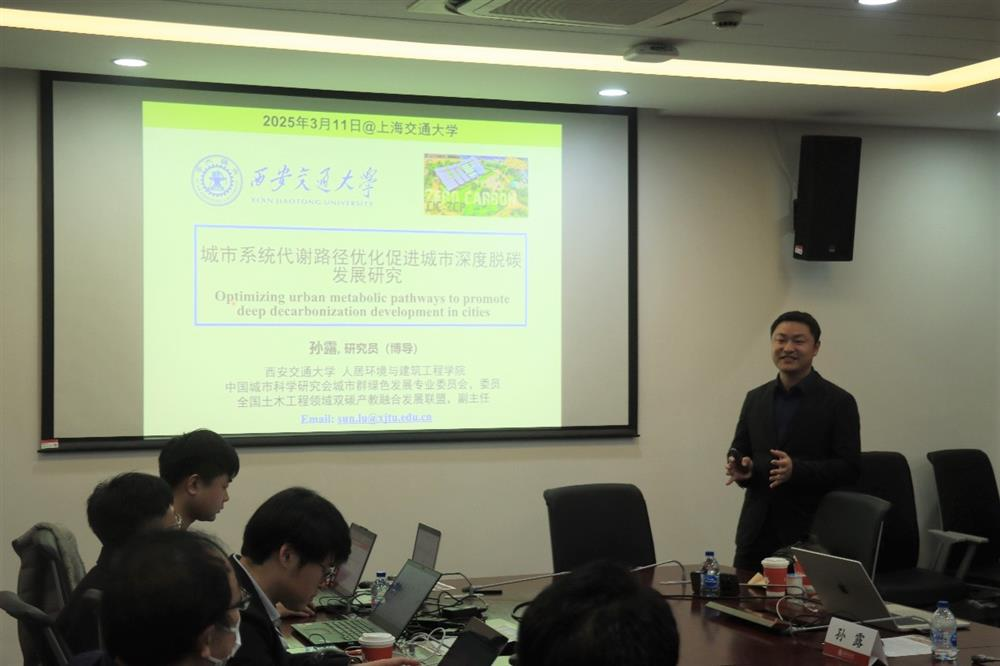
Professor Sun Lu from Xi’an Jiaotong University’s School of Human Settlements and Civil Engineering discussed “Optimizing Urban Metabolic Pathways to Promote Deep Decarbonization Development in Cities.” His research proposed strategies for optimizing urban metabolic pathways to achieve deep decarbonization, emphasizing the pivotal role of technological innovation.
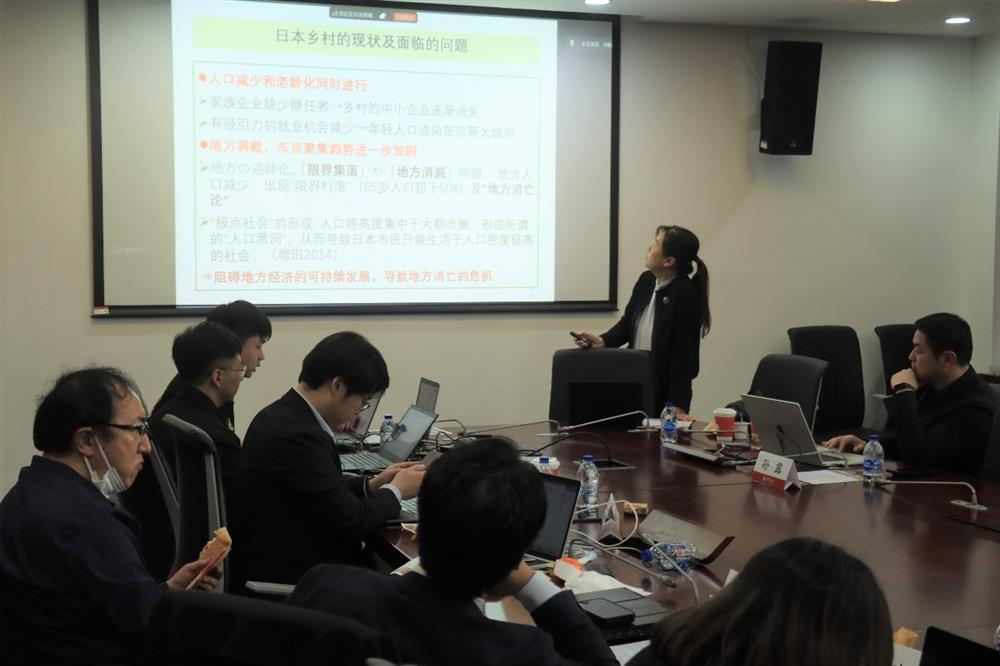
Associate Professor Park Mee Sun from Josai University’s Faculty of Economics presented a case study on “Promoting Rural Sustainability through Rural Tourism.” Her study showcased successful rural tourism initiatives that have fostered economic, social, and environmental sustainability, offering valuable lessons for sustainable rural development.
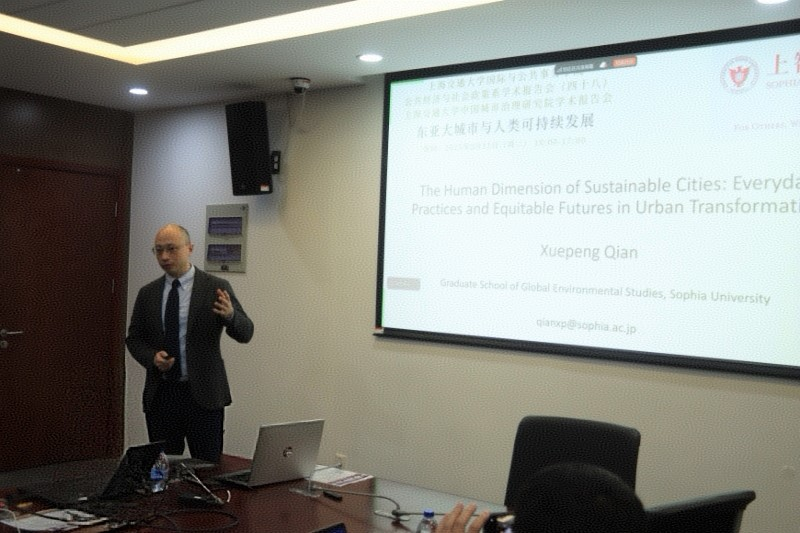
Professor Qian Xuepeng from Sophia University’s Graduate School of Global Environmental Studies delivered a speech on “The Human Dimension of Sustainable Cities: Everyday Practices and Equitable Futures in Urban Transformation.” He underscored the central role of people in urban sustainability, examining how daily urban practices influence sustainable urban development and advocating for equitable and sustainable urban futures.
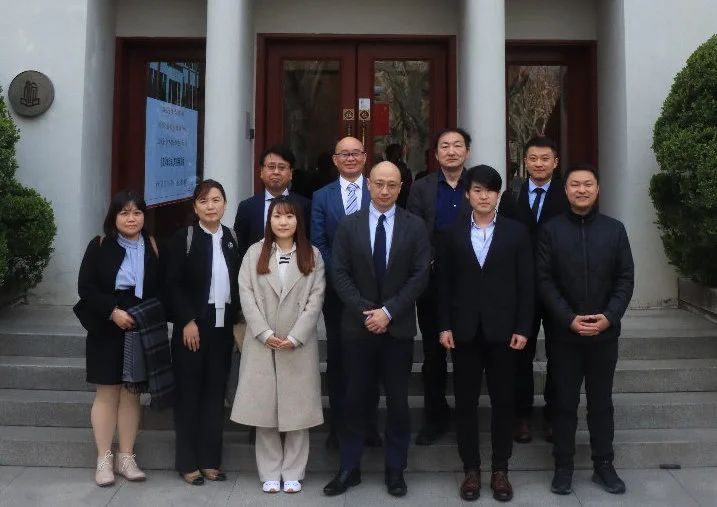
During the open discussion session, participating scholars engaged in dynamic exchanges on their respective research topics. They collectively recognized both the opportunities and challenges East Asian metropolises face in sustainable development. The consensus emphasized the importance of international collaboration, knowledge sharing, and joint efforts to address these urban challenges.
The symposium attracted numerous faculty members and students, creating a vibrant academic atmosphere. It not only provided a platform for scholars to showcase their research but also offered valuable insights for advancing academic research and policymaking in sustainable urban development across East Asia.
Looking ahead, the China Institute for Urban Governance and the Department of Public Economics and Social Policy at SJTU’s School of International and Public Affairs plan to host more events of this nature. These initiatives will continue to strengthen academic cooperation and contribute to the global discourse on sustainable urban governance.

